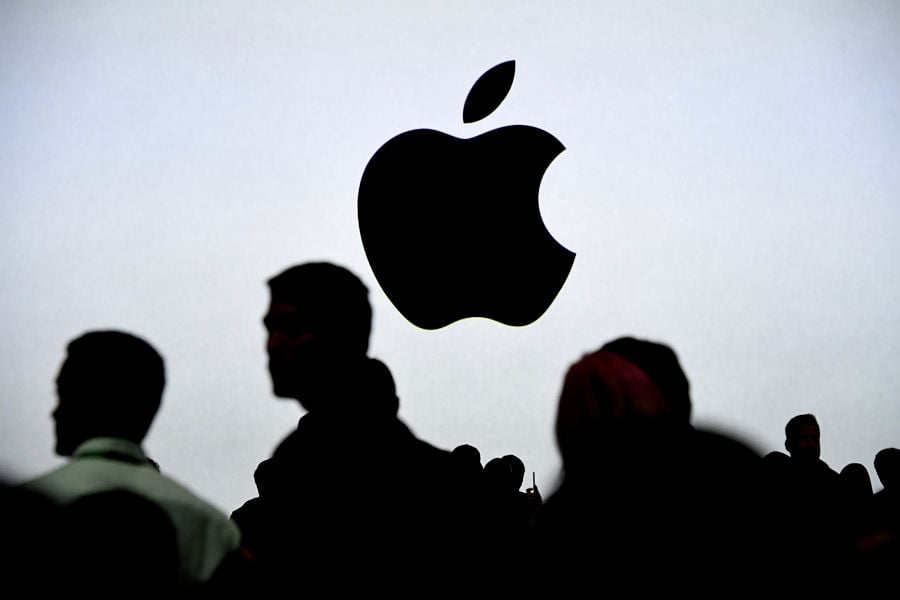

 It's just budgeting for now, but the design is similar to what's offered at consumer-facing robo-advisers, and far better than what most traditional advisory firms can provide. It really doesn't take the imagination of a Steve Jobs to picture Apple extending this interface to offer loans, CDs or high-yield savings accounts.
It just so happens their new credit card partner offers those products in the form of Marcus.
After that, Apple simply needs to partner with asset managers for access to low-cost index funds and insurance, and build out some investment advice and financial planning algorithms. With Apple providing the technology, asset managers get a distribution platform that's already in the hands of millions of loyal customers.
Apple isn't the only technology giant developing this. Microsoft is working with BlackRock to build some type of new retirement platform.
(More: BlackRock pivoting to technology could serve as blueprint for other asset managers)
Tech allows asset managers to cut out the middle man and put products directly in front of customers. While at first these technology companies will be looking squarely at the mass market rather than the high-net-worth investors most advisers serve, they could eventually become a major threat.
Whenever technology companies make forays into financial services, defensive advisers retort that financial services is a highly complex and regulated industry. Why would Apple, Amazon, Google or anyone else to get involved?
The answer, as always, is money. Apple's share of the phone market declined from 18% in Q4 2017 to 16% in Q4 2018, said Ted Rossman, an analyst with CreditCards.com.
"I definitely see why Apple is doing this: They want to juice Apple Pay usage," Mr. Rossman said, adding that only 32 million people use Apple Pay compared to PayPal/Venmo's user base of 267 million.
"Plus, as a merchant, they'll save on interchange fees when Apple Card users buy something from Apple," he said. "And as a service provider, they'll get a cut of Apple Card transactions elsewhere."
To stymie revenue losses, Apple CEO Tim Cook laid out a plan in February to shift the company's focus to services, including subscription entertainment, artificial intelligence, smart homes, self-driving cars and health care. Financial services would be just another feather in the company's cap, one that would help ensure Apple devices remain valuable items.
It's just budgeting for now, but the design is similar to what's offered at consumer-facing robo-advisers, and far better than what most traditional advisory firms can provide. It really doesn't take the imagination of a Steve Jobs to picture Apple extending this interface to offer loans, CDs or high-yield savings accounts.
It just so happens their new credit card partner offers those products in the form of Marcus.
After that, Apple simply needs to partner with asset managers for access to low-cost index funds and insurance, and build out some investment advice and financial planning algorithms. With Apple providing the technology, asset managers get a distribution platform that's already in the hands of millions of loyal customers.
Apple isn't the only technology giant developing this. Microsoft is working with BlackRock to build some type of new retirement platform.
(More: BlackRock pivoting to technology could serve as blueprint for other asset managers)
Tech allows asset managers to cut out the middle man and put products directly in front of customers. While at first these technology companies will be looking squarely at the mass market rather than the high-net-worth investors most advisers serve, they could eventually become a major threat.
Whenever technology companies make forays into financial services, defensive advisers retort that financial services is a highly complex and regulated industry. Why would Apple, Amazon, Google or anyone else to get involved?
The answer, as always, is money. Apple's share of the phone market declined from 18% in Q4 2017 to 16% in Q4 2018, said Ted Rossman, an analyst with CreditCards.com.
"I definitely see why Apple is doing this: They want to juice Apple Pay usage," Mr. Rossman said, adding that only 32 million people use Apple Pay compared to PayPal/Venmo's user base of 267 million.
"Plus, as a merchant, they'll save on interchange fees when Apple Card users buy something from Apple," he said. "And as a service provider, they'll get a cut of Apple Card transactions elsewhere."
To stymie revenue losses, Apple CEO Tim Cook laid out a plan in February to shift the company's focus to services, including subscription entertainment, artificial intelligence, smart homes, self-driving cars and health care. Financial services would be just another feather in the company's cap, one that would help ensure Apple devices remain valuable items.

Most firms place a limit on advisors’ sales of alternative investments to clients in the neighborhood of 10% a customer’s net worth.

Those jumping ship include women advisors and breakaways.

Firms in New York and Arizona are the latest additions to the mega-RIA.

The agent, Todd Bernstein, 67, has been charged with four counts of insurance fraud linked to allegedly switching clients from one set of annuities to another.

“While harm certainly occurred, it was not the cataclysmic harm that can justify a nearly half billion-dollar award to the State,” Justice Peter Moulton wrote, while Trump will face limits in his ability to do business in New York.
Orion's Tom Wilson on delivering coordinated, high-touch service in a world where returns alone no longer set you apart.
Barely a decade old, registered index-linked annuities have quickly surged in popularity, thanks to their unique blend of protection and growth potential—an appealing option for investors looking to chart a steadier course through today's choppy market waters, says Myles Lambert, Brighthouse Financial.
